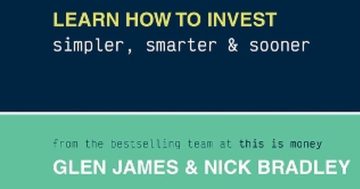Melanie Pinola* says money management might seem complicated, but most financial experts agree on at least five fundamentals.
 Personal finance is like nutrition: It seems like the experts can’t agree on anything.
Personal finance is like nutrition: It seems like the experts can’t agree on anything.
Despite all the contrasting opinions, though, most people agree on at least five basic fundamentals.
Money management might seem complicated because of the conflicting, ever-changing advice we hear (Save 10 per cent of your income! No, save 15 per cent! Pay your high-interest credit cards first! No, pay the smallest balance!), but personal finance is actually pretty simple.
After reading some of the most popular advice from money experts, I realised they really only argue about the details (how much to spend or save and where), but their advice generally boils down to: use money to get to financial independence, know where your money is going, avoid expensive debt, and use the power of compound interest.
Money is just a tool for financial freedom
Let’s start with what we can all agree on but perhaps doesn’t get talked about often enough: Money is really just a tool.
If you look at what personal finance experts are really selling, it’s not getting rich for the sake of getting rich — it’s financial freedom .
Freedom from crippling debt, from constantly worrying about money, and the freedom to provide for your and your family’s basic needs and comforts.
Money is just the tool that gets you there.
Most people couldn’t care less about how personal finance works — they just want to be in control, not worry about money, maybe even indulge occasionally.
We simply get off track financially when our money doesn’t have purpose and we forget about using this tool efficiently to reach our goals.
The only way to build wealth
The biggest consensus among money experts is the most obvious money truth: you must spend less than you earn to build wealth.
The only way to improve your finances or even stick to your budget is to create a gap — as large as possible — between your income and your expenses.
In other words, live within your means.
It’s not really groundbreaking advice, but it’s a financial truth that everyone agrees on — and one that people of all income levels should aim to follow, but usually don’t.
So, if you buy a book that promises to teach you everything about money and it doesn’t include this principle, you should ask for your money back.
If you don’t know where your money is going, you’re likely wasting it
If it’s so simple — spend less than you earn! — why can’t most of us do it?
Early in my financial journey, I was one of those “yeah, budgeting sounds great but I’ll do it later” people.
It wasn’t until I actually started tracking my spending that I understood just how bad the spending versus earning deficit could be.
It’s like managing your weight: You have to get on the scale and be conscious of what you’re eating every day if you want to make any sort of improvement.
Many of us don’t track our weight or our spending.
Experts are still mixed on whether budgets work for most people, but just about every basic personal finance book advises we at least start by taking a financial snapshot of our spending.
Where is the money actually going?
Avoid the expensive debt trap
Personal finance experts regularly preach against going into or staying in debt — sometimes any kind of debt (a la Dave Ramsey, who only makes an exception for home mortgages), sometimes just high interest debt, like the 14 per cent+ interest rates credit card companies charge.
Either way, approximately zero people think debt is good.
If you have high-interest debt, paying it off is the best financial return on your investment you can get.
Experts only differ in which order you should pay back debt — smallest balance first or highest interest rate first — and whether to pay off debt before putting money in your savings.
The experts don’t agree on this either, but consider which debt is good or bad and its interest rate.
Compound interest is the most powerful force in the universe
Interest may seem tiny — after all, it only measures a few percentage points in most cases — but it’s actually an extremely important element of personal finance.
It can help you or hurt you in a huge way.
It’s why everyone agrees we shouldn’t carry expensive debt and why just about every financial expert says to invest your money.
Take credit cards, for example: carrying a balance can quickly dig yourself into a financial hole.
On the other hand, when you put your money into interest-earning accounts (or better yet, investments), the power of compounding turns your money into much more money.
A dollar saved in your twenties is equal to $10 saved in your fifties (assuming an average annual rate of 8 per cent on investments over 30 years).
It’s the best way to make your money “work for you”.
That’s why just about everyone, Warren Buffett included, recommends saving as early as possible and “paying yourself first”.
All of the above are very basic, simple principles about money, which is why just about everyone agrees on them.
Even though money advice tends to be generally the same, this isn’t to discount the value of continuing to read about personal finance.
The way some advice is given will appeal to you more than advice from another expert, and one plan or strategy might work better for you than others.
Remember, financial success is more than just maths, too, it’s about mindset.
That’s also something most people know about money, but perhaps don’t think about very often.
* Melanie Pinola is a writer at Wirecutter. She tweets at @melaniepinola.
This article first appeared at www.lifehacker.com.au.











